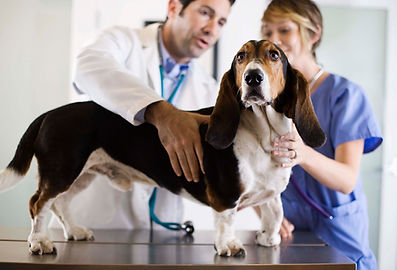
Chirovet Limited
Ken Skinner
Call to make an appointment
07986-476220
Common canine chiropractic conditions.
Small animals, mainly dogs and cats, can benefit from chiropractic examination and treatment in many situations:

Performance breeds
Agility dogs, racing greyhounds, sled dogs etc... all have to be performing at their optimum to achieve top level success.
A big part of the practice workload is keeping agility dogs at peak performance. Jess sees a lot of these dogs in a season.
Racing greyhounds are top athletes and regularly suffer from aches and pains which limit their running ability. Any restrictions or pain in their backs will limit their flexion\extension and so their ability to generate speed.
Husky sled dogs are a surprise inclusion in my practice as I've treated several packs in Norfolk over the years. I've even been phoned from the Arctic to arrange an appointment (unfortunately- when they got back to the country and not to fly me out to them!!)

Medical cases
This is an area that I feel is best placed to be treated by a vet. I am refered a lot of dogs which are in neurological trouble.
A lot of long-backed breeds suffer from slipped discs causing paresis, pain and paralysis.
Many come to me due to their age or financial situation not being appropriate to be referred for surgery. Many make remarkable recoveries, regaining the use of their legs and co-ordination. There are obvious exceptions when the disc has caused severe damage to the spinal cord. Referral for expert surgical consultation and surgery is paramount in any dog which has lost pain sensation in it's legs. This has to occur rapidly( within 12-24 hrs) for any successful outcome to be achieved. Please see your vet ASAP.
German Shepherd dogs are unique in suffering from progressive hind end paralysis. CDRM however is not the only thing which they suffer from and most look alike. The other conditions regularly can be helped by chiropractic. Lumbosacral stenosis, slipped discs, hip dysplasia all look like CDRM initially but these respond nicely.

Older Animals
I am always amazed when I treat older animals in the surgery. An increadable number of "old" dog conditions respond very well to chiropractic: The old dog that has trouble getting up from rest; the family pet that no longer jumps into the car or up onto the sofa; the arthritic dog that has started pain meds to help with hip pain.
Many of these chronic conditions are really pain arising from a badly moving spine or sacroiliac joints causing the animal to use inappropriate muscles to try and compensate. I find that many of my patients, even with demonstrable arthritis on x-rays, seem to move more freely and require less pain relief once they have been adjusted.